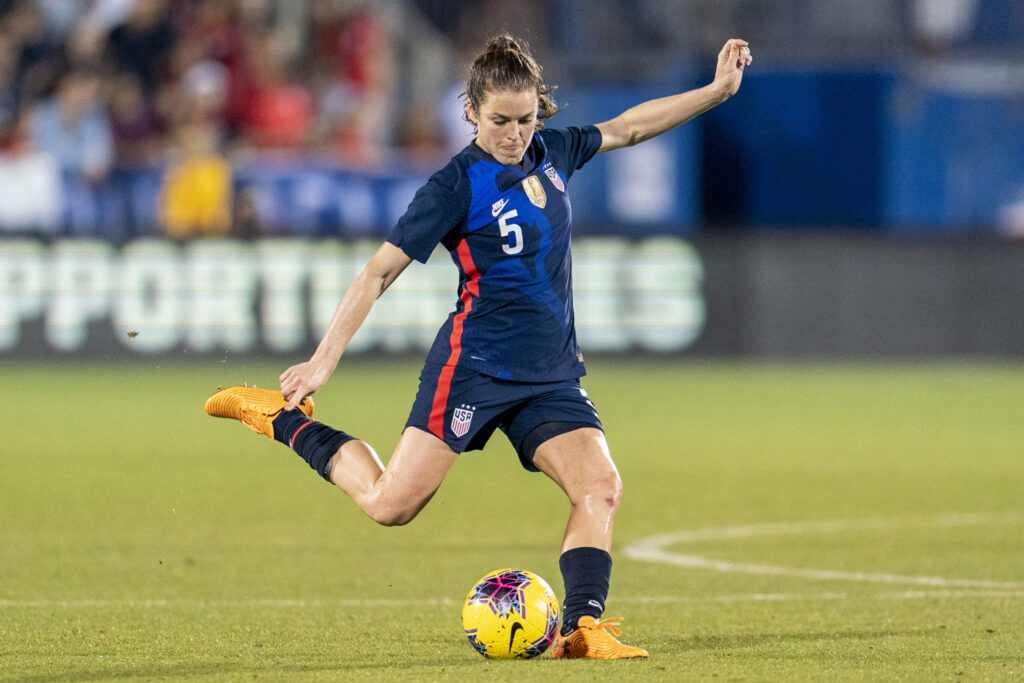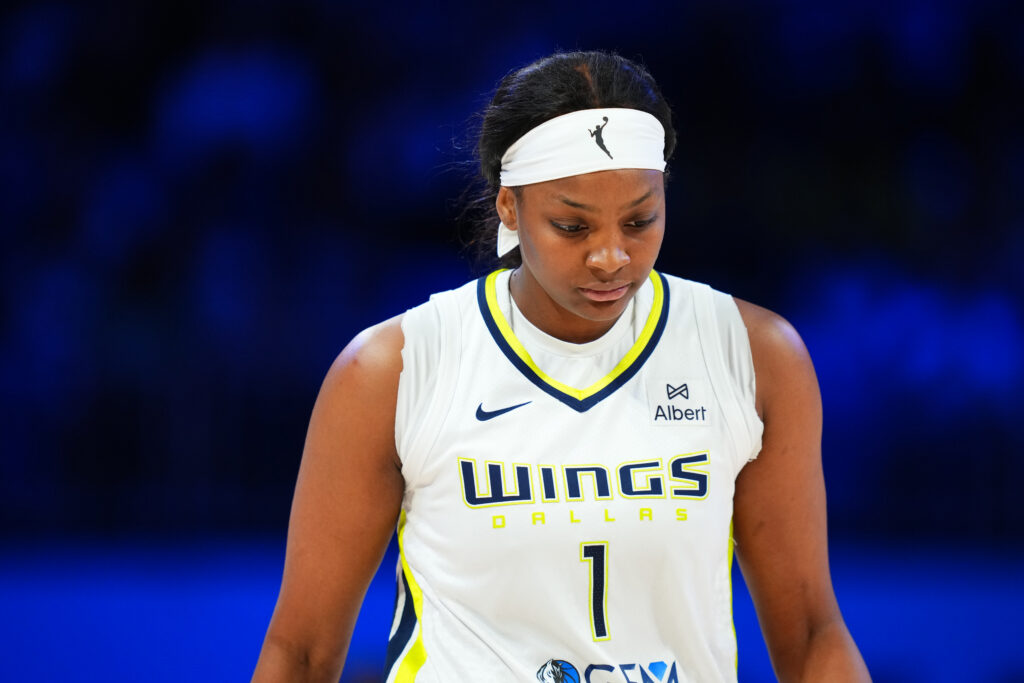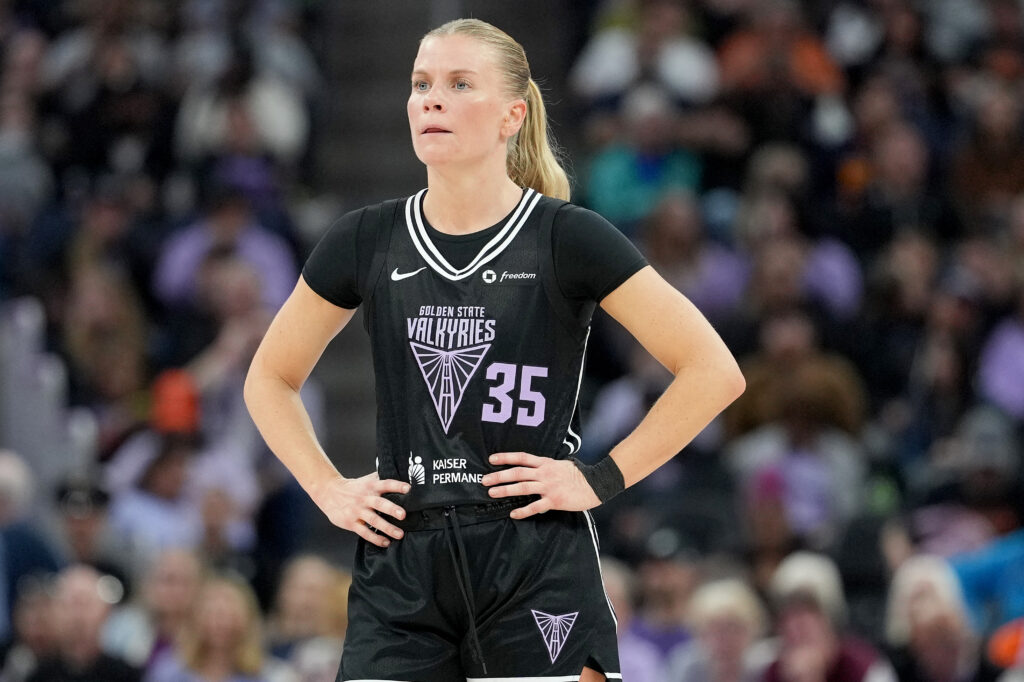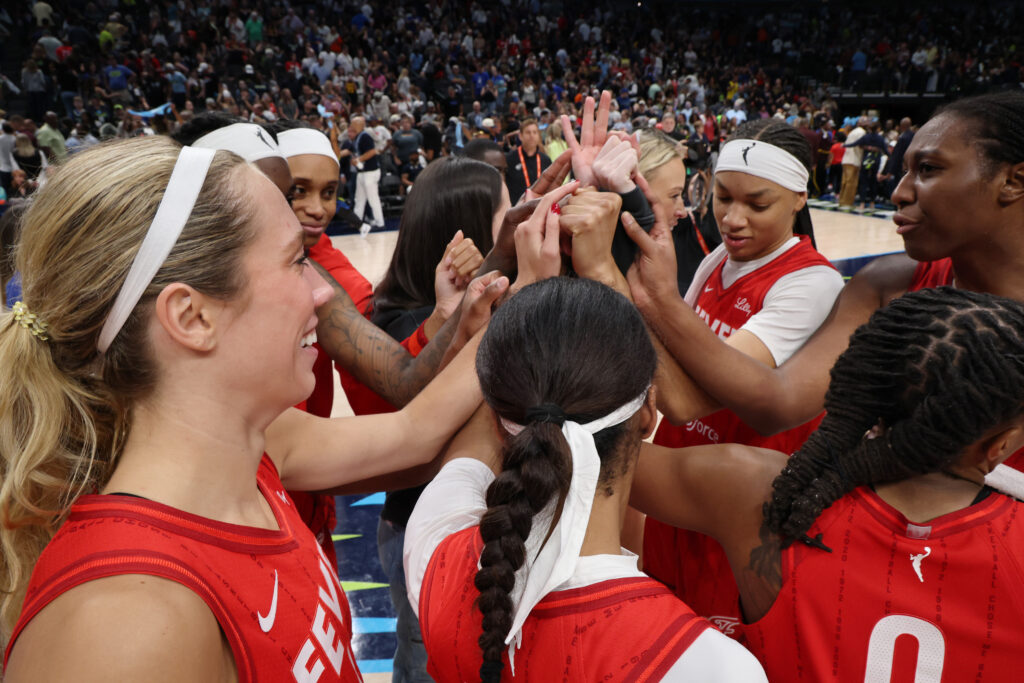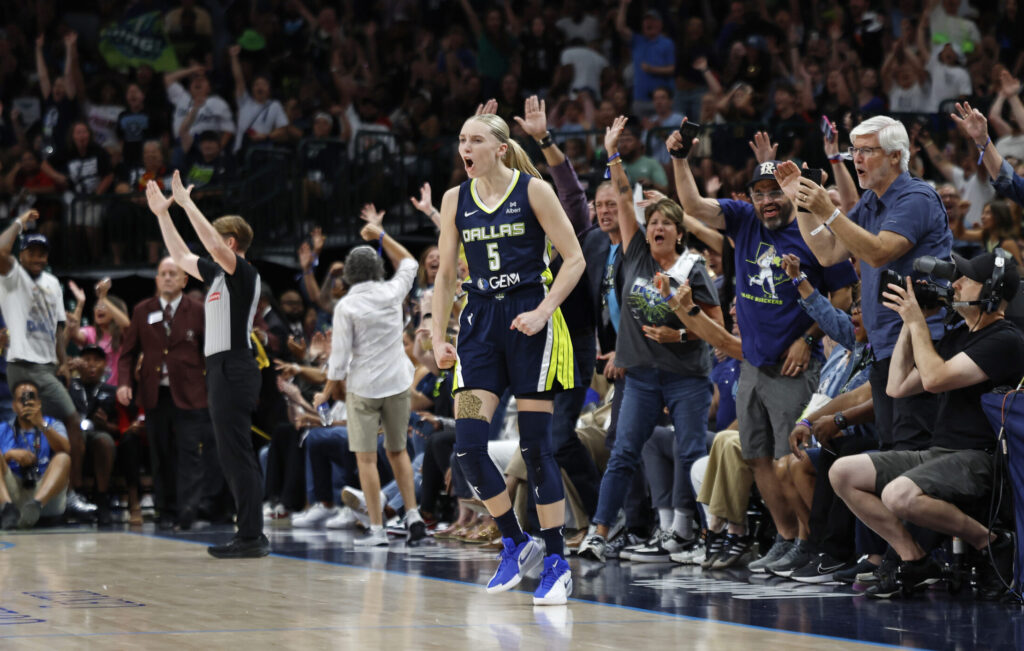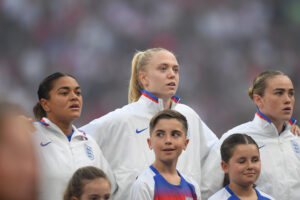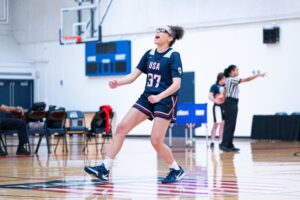Kelley O’Hara still remembers post-Olympic depression settling in after her first tournament in 2012.
The London Games marked her second major international competition with the U.S. women’s national soccer team, and the squad left the Olympics with gold medals. But O’Hara found herself struggling with the transition back to daily life.
“Post-Olympic depression was very real for me,” O’Hara said on the most recent episode of Snacks. “And we won, which is kind of crazy.”
The USWNT defender isn’t alone in those feelings. A 2021 study of Olympic and Paralympic athletes found that 24 percent reported experiencing high or very high psychological distress.
Following the 2012 Olympics, the team went on a 10-game victory tour that fall (which was “a lot, but also super fun,” O’Hara said). But as they were going on their run, the Women’s Professional Soccer league was folding. While O’Hara had signed with the Atlanta Beat in what was supposed to be a homecoming for the Georgia native, she and other players now had to figure out what to do next.
“We won, we had this incredible experience, and then we came home and it was such an incredible homecoming as well,” O’Hara said. “But we didn’t have games to go back to.”
That roller coaster of emotions can come after a loss as well, O’Hara noted, saying: “You’re gonna feel it either way.”
Even with the sustained success of the USWNT, the team has suffered its fair share of disappointments in O’Hara’s career: A silver at the 2011 World Cup; a quarterfinal loss at the 2016 Olympics in Brazil; a bronze medal at the 2020 Olympics in Tokyo.
“I think that winning bronze is probably more enjoyable as a team sport athlete in the Olympics than winning silver because you basically lose [during the gold medal game] and in the moment you probably can’t appreciate it,” she said.
While the 2011 loss “wasn’t as intense” because it was her first major international tournament, O’Hara said, the sting of the 2016 Games stuck with her for a while.
“I think 2016 was probably the worst I felt post tournament, because we went out in the quarters of the Olympics,” she said. “I tried to be cool and normal about it, go to the parties, go see some events which were fun, but I was like, ‘This sucks, I’m not having fun.’
“I sat on my balcony overlooking the beach for an entire morning until the afternoon because I just was like ‘I don’t wanna do anything. Why am I here, why did I come here? What am I doing with my life?’”
Following the third-place finish at the Olympics last summer, O’Hara said she was able to reset a bit with a week off in between the international tournament and returning to her NWSL club, the Washington Spirit. The disappointment of the Olympic loss pushed her to help the Spirit go on a tear to win the NWSL title.
“Us losing in Tokyo was a bit of a catalyst for me to be like, ‘No, we’re gonna win this championship this year. Like, that’s all I have left to do, we’re doing it,’” O’Hara said. “I was like, absolutely not.”
